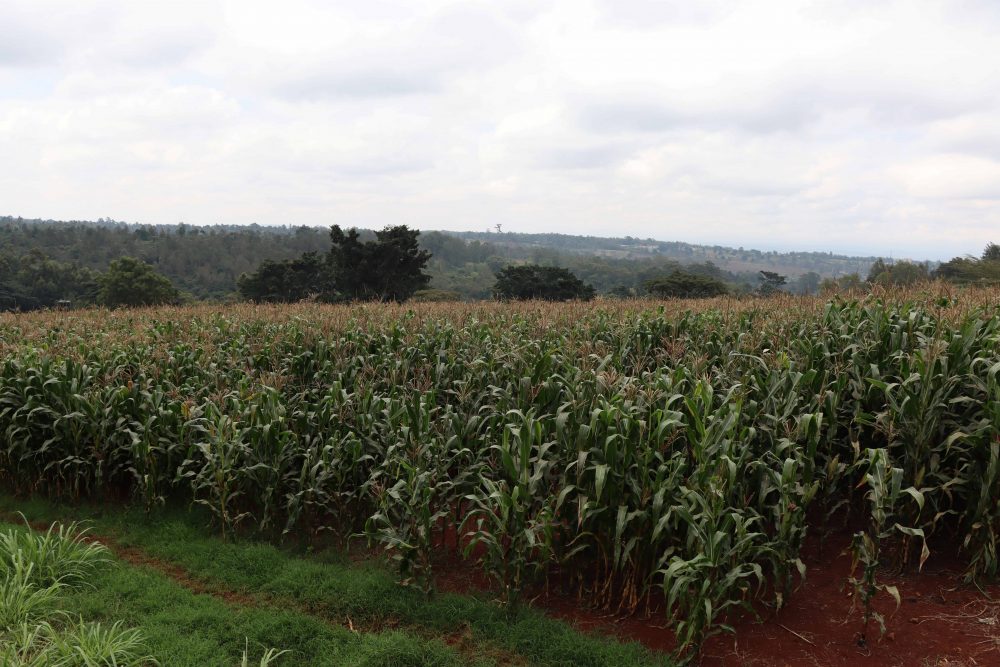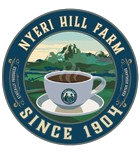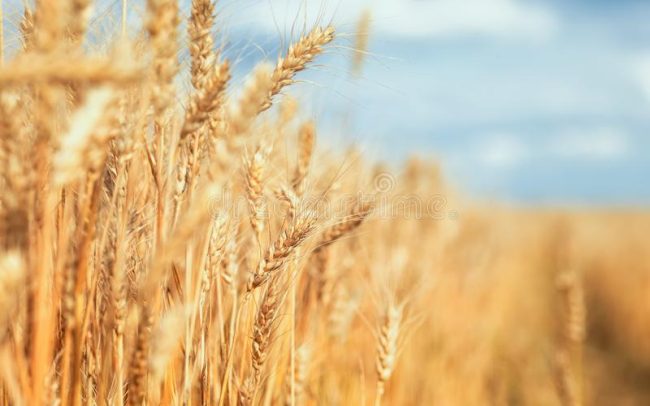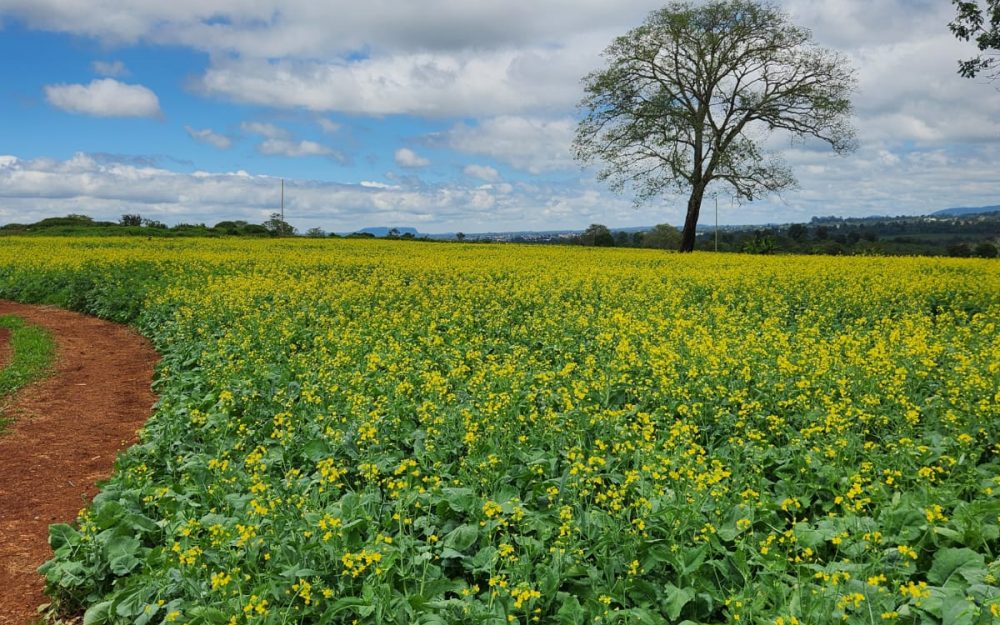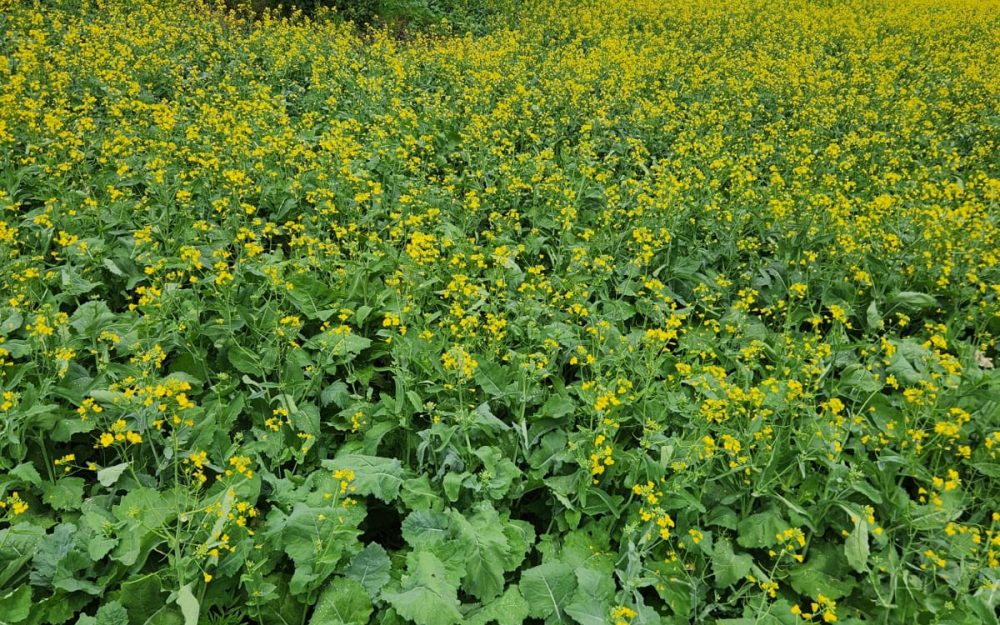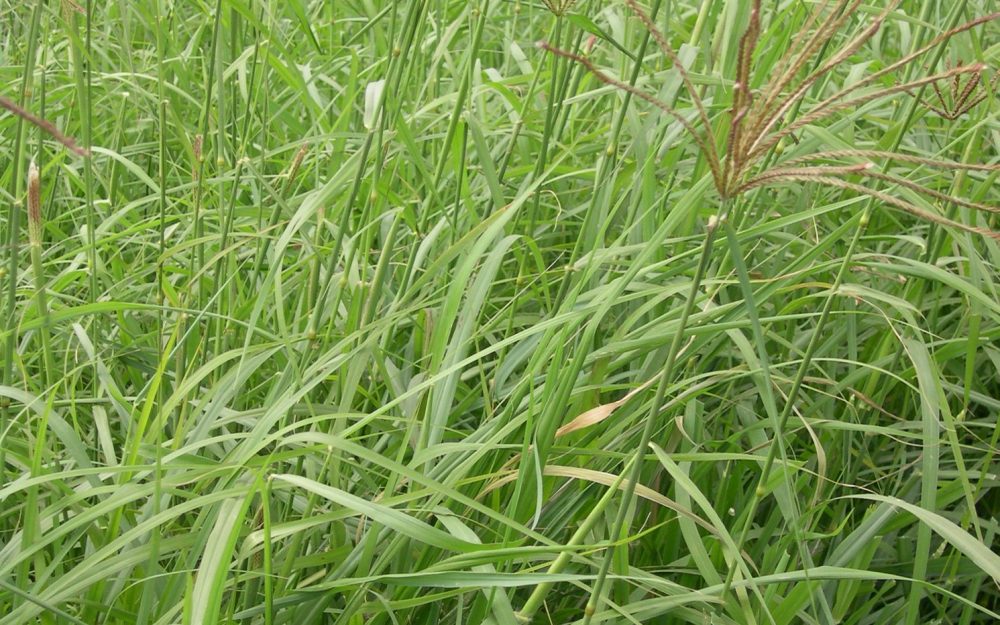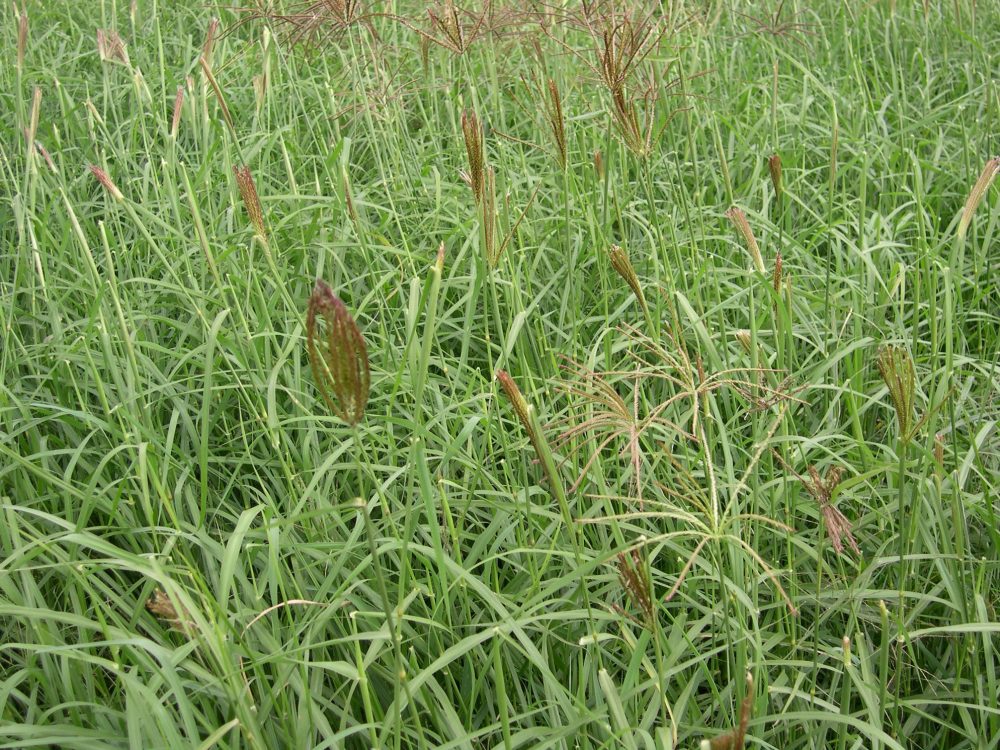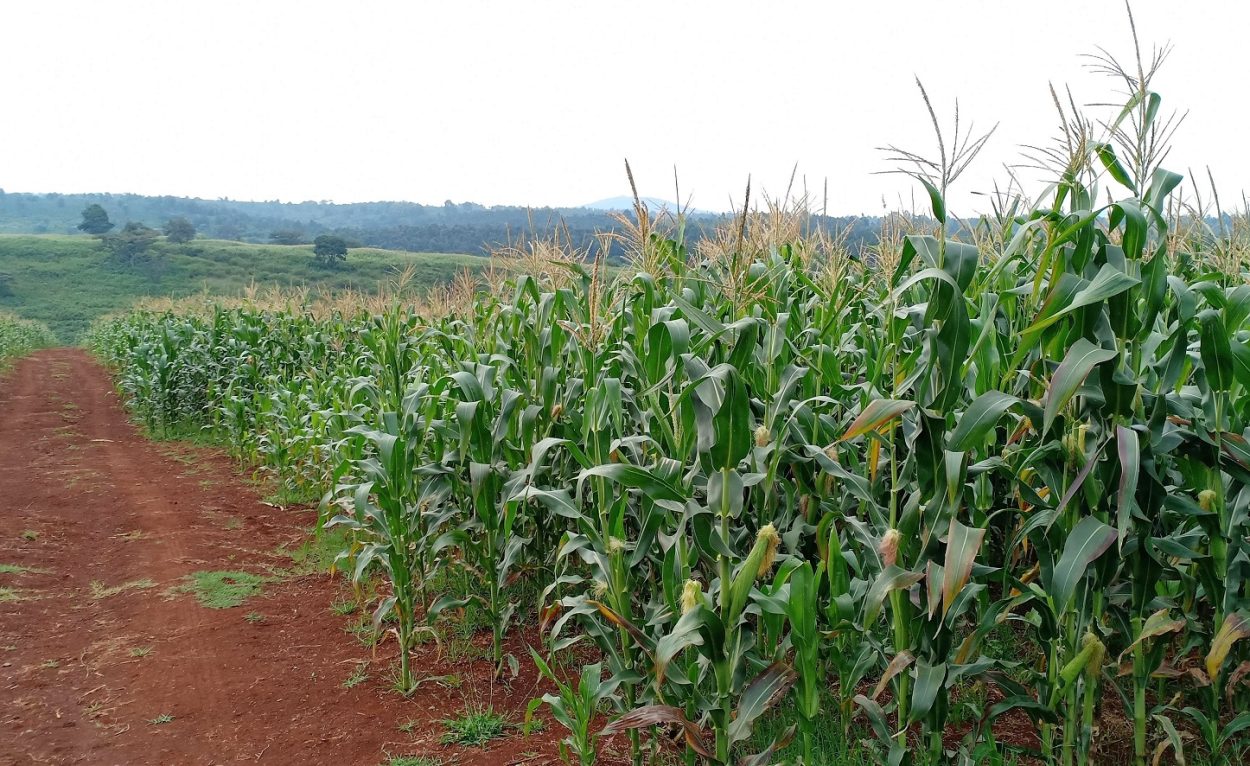
Our geographical location and altitude allow us to cultivate both long-duration series (e.g., H614, H629) and short-duration series (e.g., Panner maize, DeKalb maize). The choice of series for a particular season is guided by information from the meteorological department.
Cultivated on loamy volcanic soils, our maize benefits from well-distributed rainfall and favorable climatic conditions. This results in an average annual production of 2,000 tons of full corn silage, serving both internal needs and the commercial market. On average, we yield 10 tons of ready silage per acre, showcasing the productivity and efficiency of our maize cultivation practices.
Maize takes center stage in our fodder unit, constituting over 50% of our production efforts. For the past six years, Nyeri Hill Farm has been consistently engaged in maize production, catering to both silage and corn needs.
Our maize cultivation follows two distinct growing patterns:
-
Rain-fed production: This occurs in two seasons annually.
-
Irrigated production: This takes place three times a year.
